“The Tao that can be named is not the eternal Tao” is the first line of the first verse of the Tao Te Ching.
So what is Lao Tzu blathering about here? He’s trying to tell us that our propensity for applying labels, while an evolutionary advantage, not a part of the natural world, that we lose sight of things as we assign labels to them. Shakespeare shared this sentiment in Romeo and Juliet, “a rose by any other name, would smell as sweet.”
We humans tend to label things — it is a unique trait to our species. And while this may help us in very practical ways, it can be a limiting factor to our understanding. In practical terms it helps us identify threats and things that may aid us in our survival, but when we get lost in those labels we lose perspective. For instance, when we label things as poison, it is useful to help us stay alive, but it also limits our understanding. Things are not poison, they are poisonous to humans, and sometimes only under certain conditions. It requires the distinction that a particular point of view must be applied in order for that label to have meaning.
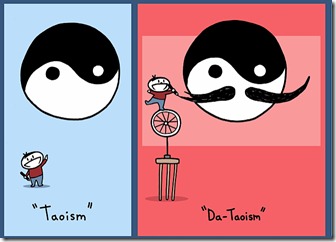 Giving too much attention to the label blinds us to the wholeness of reality, locking us into a singular perspective. If we only see one side of something it is easy to label it, but those labels break down as we expand or change our point of view. So were the labels real? Or are they just our attempt to stick a pin in a moment, to try and hold onto it because it makes us comfortable, or because it gives some sense of control over things that are really not ours to control?
Giving too much attention to the label blinds us to the wholeness of reality, locking us into a singular perspective. If we only see one side of something it is easy to label it, but those labels break down as we expand or change our point of view. So were the labels real? Or are they just our attempt to stick a pin in a moment, to try and hold onto it because it makes us comfortable, or because it gives some sense of control over things that are really not ours to control?
To see the truth about something is to see it without being limited by one perspective or being lost in the concepts that words carry. Sometimes it helps, but the truth goes beyond what is temporarily useful to us. Warning some one that a pan is hot is a useful label in the moment, but we don’t walk away thinking pans are hot all the time. That label was just for a limited time.
 One way I came to understand this is to follow my cat around; I had read that you could get a sense of what it’s like living in the moment by observing your pets and imagining how they see the world. A world for which they have no words, they have no labels no language that we could understand as such. What is it like to curl up and nap on a chair and not think “I’m going to nap now”, with out defining things in labels as we do, but to simply be and take part in that being.
One way I came to understand this is to follow my cat around; I had read that you could get a sense of what it’s like living in the moment by observing your pets and imagining how they see the world. A world for which they have no words, they have no labels no language that we could understand as such. What is it like to curl up and nap on a chair and not think “I’m going to nap now”, with out defining things in labels as we do, but to simply be and take part in that being.
It may be that they do use some sort of internal dialog to keep track of past experiences, but certainly not in any sense that would be familiar to our complicated language. It may be just a memory sensation, but with the absence of words. In that intersection of instinct and memory, they can recognize and react with out applying any extra expectation as humans would. They flow with what they know and what is, in the moment, wordlessly interacting and reacting with the environment around them.
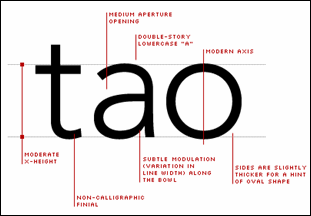 Most of the time the use of labels makes sense, making tasks easier and protecting our selves from reasonable threats, but other times they become more of a liability than an advantage. It takes great skill to know exactly all the times one should embrace or reject the use of labels. One way to help is to pay attention to our own thoughts. To listen to them with out labeling them, to see what they are truly trying to tell us. Particularly when our thoughts are their most agitated, and uptight, those are cues that this may be a
Most of the time the use of labels makes sense, making tasks easier and protecting our selves from reasonable threats, but other times they become more of a liability than an advantage. It takes great skill to know exactly all the times one should embrace or reject the use of labels. One way to help is to pay attention to our own thoughts. To listen to them with out labeling them, to see what they are truly trying to tell us. Particularly when our thoughts are their most agitated, and uptight, those are cues that this may be a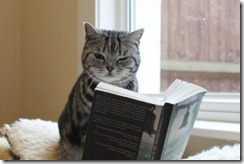 time to look deeper and with a wider field of view.
time to look deeper and with a wider field of view.
An important time to adopt this attitude is when engaged in an argument; if you drop labeling the other as an enemy you may open your self to a better understanding of what is troubling them, leading to a more fruitful end to the argument. Enemies need to be defeated, but one who is not truly an enemy but labeled as such can lead us to not seek a solution but to 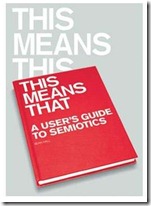 seek their defeat instead. By simply shifting to a different label, in your mind, you open a new way of handling the situation. Suddenly your adversary becomes a partner in solving a pressing problem.
seek their defeat instead. By simply shifting to a different label, in your mind, you open a new way of handling the situation. Suddenly your adversary becomes a partner in solving a pressing problem.
It is not easy for us humans to go against thousands of years of evolution, but we are not running from tigers on the Savannah any more; we have taken language from the simple to the sublime. Our communication can seem, at times, to be more complicated than the world it seeks to define. Our words can have very real effect, they are useful tools, ones that we need to wield wisely.
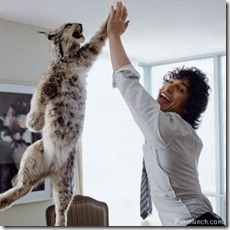 To understand that when we name something the thing does not become the name we must note that no name can truly capture any thing’s reality. The Tao asks us to look beyond the labels and names we use, to see the deeper reality, in doing so we can find more skillful ways of navigating our world.
To understand that when we name something the thing does not become the name we must note that no name can truly capture any thing’s reality. The Tao asks us to look beyond the labels and names we use, to see the deeper reality, in doing so we can find more skillful ways of navigating our world.
Check out Rev. GMS’ Dudeist blog at www.thelimbermind.com
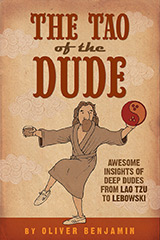
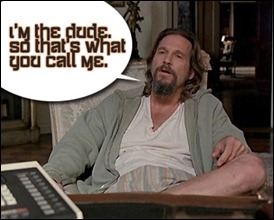

Korzybski’s theory of general semantics, and the E-Prime language, go deeper into this.
?”One way I came to understand this is to follow my cat around; I had read that you could get a sense of what it’s like living in the moment by observing your pets and imagining how they see the world. A world for which they have no words, they have no labels no language that we could understand as such. What is it like to curl up and nap on a chair and not think “I’m going to nap now”, with out defining things in labels as we do, but to simply be and take part in that being.”
This is an assumption applied from the human-centric perspective, there is absolutely no reason to assume that cats do not use language, do not label, do not think “I’m going to nap now” simply because we do not comprehend their language.
To label something, whether alive or just a material possession, like a stuffed animal, imparts a sense of personality to it. It becomes part of your personality, your ‘being’. We give it substance.
@ Mike, I tried to cover that eventuality in the next paragraph. Maybe I didn’t state it clear enough, but I do recognize the possibility, we just don’t know dude.